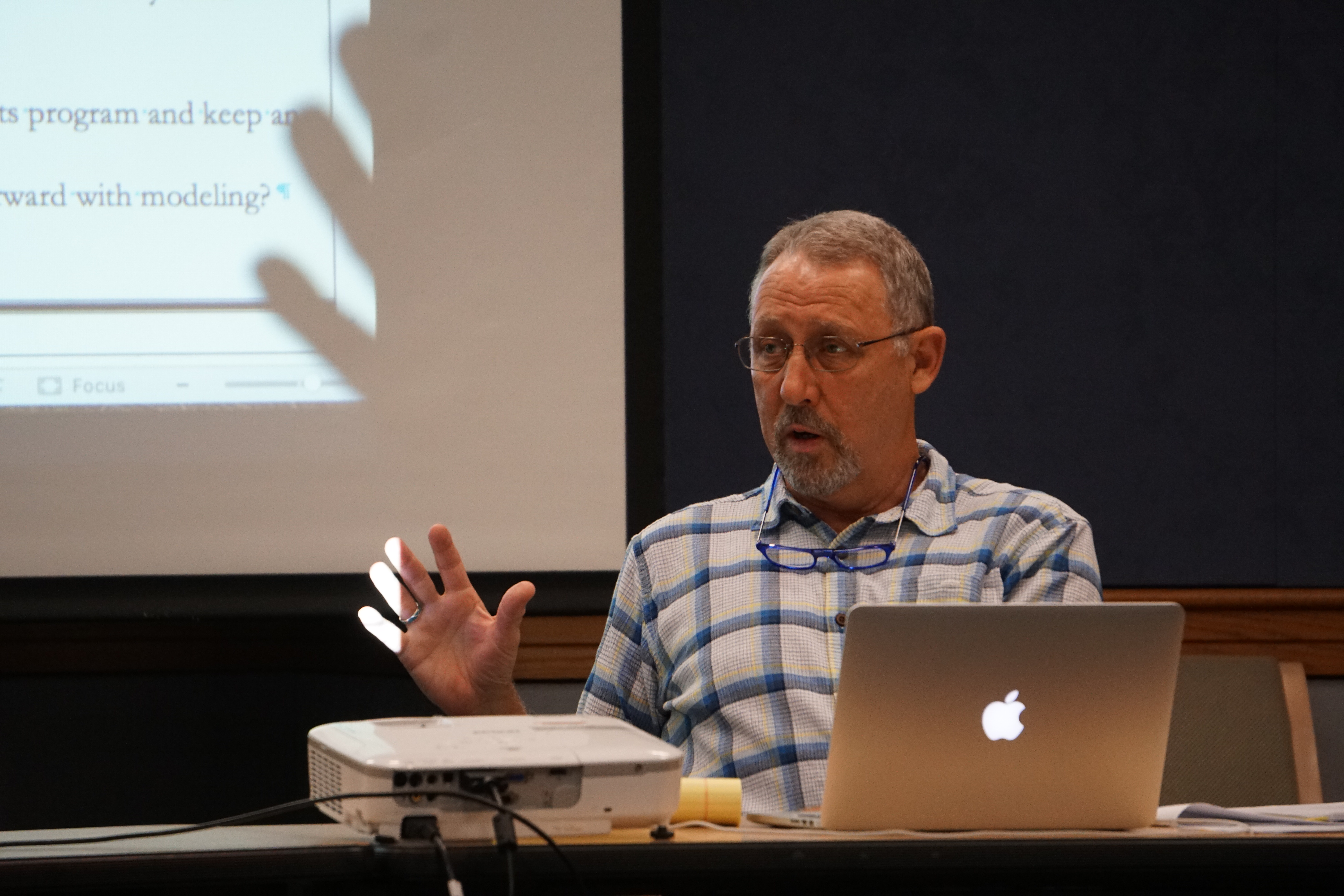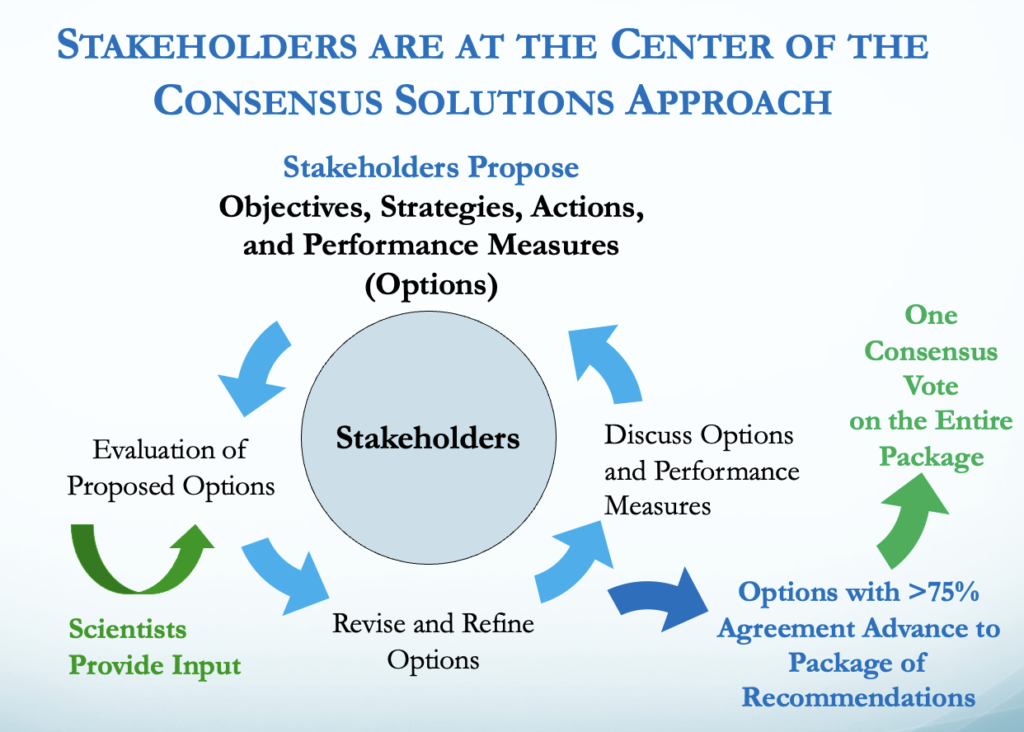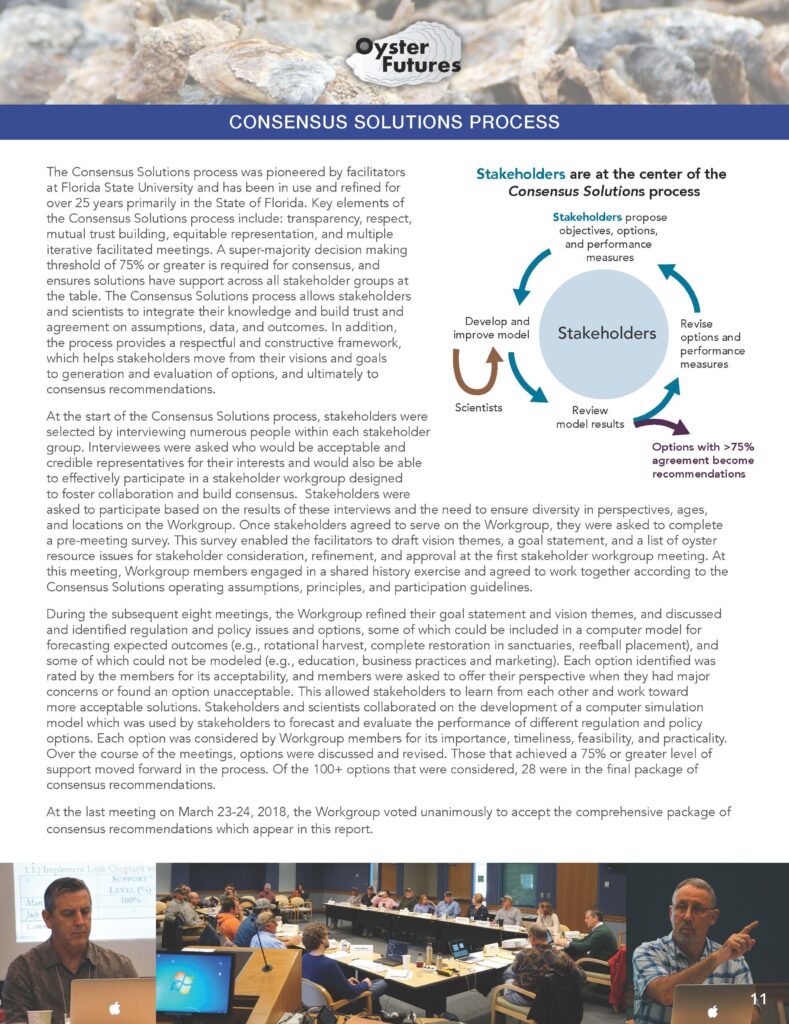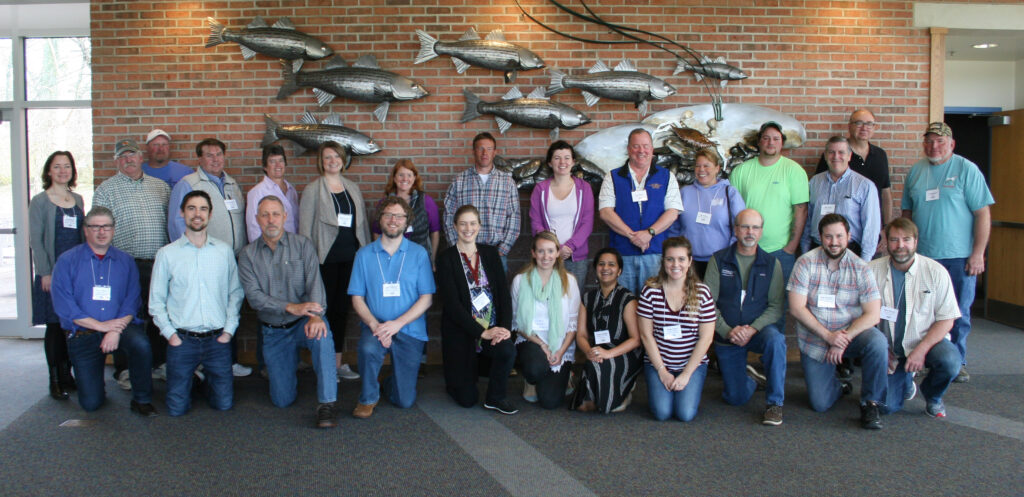
OVERVIEW OF SERVICES
Facilitated Solutions, LLC, through services provided by Jeff A. Blair, has been providing collaborative services including process design, situation assessment, facilitation, consensus-building, strategic planning, and organizational consultation and training since the 1970s. Jeff Blair provides:
- Direct Provision of Services. Direct provision of collaborative process services (i.e., facilitation, negotiation, consensus-building, process design, and situation assessment) for public, private, and non-governmental organizations (NGO);
- Planning and Strategic Goals Implementation. Assistance to public, private, and NGO sector entities regarding strategic planning and action implementation plans;
- Team Planning and Task Management. Management of project planning team including: organizing, facilitating, and reporting on team planning meetings, including critical path tasks management;
- Situation Assessment and Process Design. Consultation with public, private, and NGO sector interests in situation assessment, process design, consensus-building, and strategic and action planning to meet their needs; and
- Training. Provision of facilitation, collaboration, consensus-building, process design, and effective meeting management training for the public, private, and NGO sectors.

Jeff Blair Facilitating OysterFutures Meeting – 2017
OVERVIEW OF QUALIFICATIONS AND EXPERIENCE
Jeff A. Blair, principal and owner of Facilitated Solutions, LLC is a facilitator and process consultant based in Tallahassee, Florida, with over 35 years of experience assessing and analyzing complex issues in public, private and nonprofit organizations with a specialty in multi-party collaborative stakeholder consensus building processes involving scientific and technical issues. A key aspect of his process involves organizing, facilitating, and reporting on regularly scheduled project planning meetings, including critical path tasks management. Prior to his retirement, he was a research faculty at Florida State University (FSU) and served as Associate Director for the FCRC Consensus Center at FSU for twenty-one years. He specializes in facilitation and process design and in addition his work includes situation assessment, strategic planning and implementation, and consensus building between and within diverse stakeholder interests with divergent perspectives on complex issues.
He has worked with federal, state, local government, non-governmental organizations, and private sector representatives to design and implement collaborative approaches to consensus-building, planning, rulemaking, and dispute resolution with an emphasis on stakeholder participation in the planning, design, implementation, and monitoring of policy actions in more than 190 projects and over 2500 meetings. Jeff has extensive experience working with scientists, engineers, local, state and federal agency representatives, and the full range of diverse stakeholders impacted by an issue, to collaboratively develop strategies and alternatives to address key issues in an inclusive process that builds trust and support for the results and enhance the likelihood of implementation.
Ongoing projects include serving as process designer, lead facilitator, and conflict resolution consultant for stakeholder groups including: 1) The University of Maryland Center for Environmental Science’s (UMCES) National Science Foundation’s (NSF) funded Convergence Accelerator Project tasked with developing “A New Biomanufacturing Process for Making Precipitated Calcium Carbonate and Plant-Based Compounds that Support Human Health” by transforming waste streams of desalination plants into sustainable products that capture carbon from the atmosphere; and 2) The Florida Department of Business and Professional Regulation’s (DBPR) Florida Building Commission’s (FBC) ongoing process of building consensus on all facets of the Florida Building Code System including facilitating over 2,000 individual meetings for the Commission since 1999 including 70 special issue stakeholder workgroup projects, all culminating in unanimously adopted consensus recommendations.
Recently completed projects include process design and successfully facilitating unanimous consensus agreement between diverse stakeholder interests for the following consensus building projects:
- The Oyster Recovery Partnership’s Oyster Coalition Workgroup’s unanimously adopted recommendations for a Sustainable Oyster Restoration and Management Plan for Eastern Bay, Maryland (Chesapeake Bay). – Adopted Unanimously 5 December 2024.
- The Florida Building Commission’s Existing Building Inspection Workgroup tasked by the Commission with three legislative assignments culminating with a package of unanimously approved consensus recommendations for the establishment of a Building Safety Program for Implementation of Mandatory Structural Inspections for Condominium and Cooperative Buildings, within the 2023 Florida Building Code, Existing Building, which were subsequently unanimously adopted into the Code by the Commission pursuant to their legislatively required assignments (2020 – 2024) – Approved Unanimously 20 March 2024, and Adopted Unanimously by the Florida Building Commission 13 August 2024;
- Florida State University’s Apalachicola Bay System Initiative Community Advisory Board’s unanimously adopted recommendations for the Apalachicola Bay System Ecosystem-Based Adaptive Management and Restoration Plan for restoring the Apalachicola Bay System (2019 – 2023) – Adopted Unanimously 29 November 2023. Resulted in the formation of The Partners for a Resilient Apalachicola Bay to ensure the Plan is implemented, monitored, and adapted as needed;
- The University of Maryland Center for Environmental Science’s Bailey Wildlife Foundation’s funded Global Defense for Coral Reef Wildlife interdisciplinary Research Team research project to build a system to support corals and coral reef wildlife by creating carbon neutral or negative habitat and in the process removing carbon dioxide from the air (2019 – 2013) – Final Research Report Delivered April 2024;
- Design and development of a Priority Issues Workplan and associated Workplan Tracking Flowchart for The Apalachicola-Chattahoochee-Flint Stakeholders (ACFS) ongoing work to develop consensus on a science-based water supply plan for the ACF Basin (2021 – 2022) – Adopted Unanimously 23 March 2022;
- The Nature Conservancy’s Pensacola Bay System Stakeholder Working Group on the Oyster Fisheries and Habitat Management Plan for the Pensacola Bay System (2019 – 2021) – Adopted Unanimously 17 March 2021. Resulted in NOAA awarding the Pensacola and Perdido Bays Estuary Program $10.9 million for implementation of the Plan; and
- The Coastal SEES OysterFutures Workgroup on Recommendations for Oyster Management in the Choptank and Little Choptank Rivers (Chesapeake Bay) (2015 – 2018) – Adopted Unanimously 24 March 2018. Resulted in the Maryland Legislature codifying the Consensus Solutions Process for use by the Maryland Oyster Advisory Commission.
Additional Project Examples Include:
The USFWS’ Loxahatchee and Hobe Sound NWRs Strategic Alignment Initiative Workplan Adopted Unanimously 5 December 2019; the USFWS’ Regional Strategic Vision Alignment Initiative on USFWS R4 Strategic Vision Alignment Plan Adopted Unanimously 26 June 2019; the Suwannee River Partnership Steering Committee (FDACS, FDEP, SRWMD, UF/IFAS) Planning Initiative on Priority Strategic Actions Workplan Adopted Unanimously 17 August 2018; the North Florida Regional Water Supply Partnership Stakeholder Advisory Committee (SRWMD/SJRWMD/FDEP/FDACS) on the North Florida Regional Water Supply Plan Adopted Unanimously 2 November 2016; the Gulf of Mexico Angler Focus Group Initiative on Examination of Possible Private Recreational Management Options for Gulf of Mexico Red Snapper Adopted Unanimously 30 November 2016; and the Ocean Conservancy’s For-Hire Recreational Fisheries Electronic Monitoring Assessment Report Assessment Report and Recommendations Delivered January 2017.
Additional Experience Includes:
He served as process consultant and facilitator for the Florida Department of Agriculture and Consumer Services’ (FDACS) Pest Control Enforcement Advisory Council, Pesticide Review Council, FDACS Agricultural Feed, Seed and Fertilizer Advisory Council, and the Florida Coordinating Council on Mosquito Control for over ten years. He facilitated the Florida Division of Emergency Management’s Flood Resistant Standards Workgroup and the Florida Emergency Notification System Vision Workshop. He has done work for the National Oceanic and Atmospheric Administration (NOAA) including the National Saltwater Recreational Fishing Summit, Deepwater BP Oil Spill Programmatic Environmental Impact Statement scoping workshops, NOAA Fisheries Chesapeake Modeling Symposium and the Gulf of Mexico Grouper Forum. Work for United States Environmental Protections Agency (USEPA) includes the National Bedbug Summit and the International Public Health Pesticides Workshop in London, England. In addition, he facilitated the Deepwater Horizon Natural Resource Damage Assessment Trustee Council (Alabama, Florida, Louisiana, Mississippi, Texas, and the DOI, NOAA, and DOD).A
Work for the private sector includes designing and facilitating the Recreational Boating Stakeholders Growth Summit, and working with National Pest Management Association (NPMA), National Marine Manufactures Association (NMMA), Association for Structural Pest Control Regulatory Officials (ASPCRO), Association of American Plant Food Control Officials (AAPFCO), Florida Green Building Coalition (FGBC), National Association of Home Builders (NAHB), Florida Natural Gas Association (FNGA), and the Solar Policy Advocates Board. Mr. Blair has provided facilitation, planning, and process design for numerous agencies, entities, non-profit organizations and associations since 1977.
He is a Florida Supreme Court Certified Mediator, a U.S. Institute for Environmental Conflict Resolution, National Roster of Environmental Dispute Resolution and Consensus Building Professionals qualified/approved practitioner, a qualified/approved practitioner on EPA’s Environmental ADR Neutrals Roster, and is qualified as a Senior Conflict Management Specialist for the Department of Interior’s (DOI) Office of Collaborative Action and Dispute Resolution (CADR), and DOI’s Workplace Conflict Management roster. He is a Florida Certified General Contractor and operated a successful design-build firm in Tallahassee Florida from 1980 – 1998 winning the parade of homes three times. He is a graduate of the University of Florida (Philosophy and Anthropology) and the Florida State University (Social Policy and Dispute Resolution).
In summary, Jeff Blair has the education, experience, and skills, to effectively collaborate with clients to design, implement, and facilitate successful consensus-building initiatives working with diverse stakeholders on complex policy issues. In addition, Jeff has extensive experience facilitating virtual meetings via various webinar platforms including Zoom, Go-To-Meeting, Webex, Microsoft Teams, and Skype for Business.
CONTACT INFORMATION

Results of Working Collaboratively and Respectfully!

Facilitated-Solutions-Experience-Qualifications-Approach-Updated-January-2025
MISSION STATEMENT
The mission of Facilitated Solutions, LLC is to assist clients and their stakeholders to achieve broad based consensus on the development and implementation of effective solutions, and to foster the use of effective collaborative processes and procedures within and across agencies, associations, businesses and between stakeholders. Facilitated Solutions, LLC is committed to fostering a civil and respectful discourse and engagement between stakeholders on the evaluation, development and implementation of collaboratively developed solutions to complex policy issues.
GUIDING PRINCIPLES

APPROACH TO CONSENSUS BUILDING – CONSENSUS SOLUTIONS PROCESS
Stakeholder Engagement Approach. Facilitated Solutions’ approach to stakeholder engagement is to work collaboratively with our clients to design and implement consensus-based processes, and strategies for building agreement on complex issues among and between diverse stakeholder interests using a fair, transparent, inclusive, representative, and collaborative consensus building stakeholder-centered process we designed, called the Consensus Solutions Process. This approach, that we have used successfully since 1999, includes: fostering respect, mutual understanding and trust building, equitable representation, and multiple iterative facilitated meetings. A super-majority decision making threshold of 75% or greater is required for consensus ensuring that solutions have support across all stakeholder groups at the table.
In evaluating key issues for consideration by stakeholders we craft a sequence of steps to assist them in agreeing on a common vision, goals, and desired outcomes, and subsequently we facilitate interactions among stakeholders that encourage mutual understanding and joint problem solving leading to the generation and evaluation of a full range of options, prior to proceeding to the step of agreement on solutions. In the conduct of facilitation, we focus on process and not content, and work to assist the group to build a durable consensus on substantive and procedural issues using our fair and transparent Consensus Solutions Process.
In productive well-designed collaborative meetings, the Facilitated Solutions facilitator guides participants to communicate effectively, define issues, develop and assess goals, and commit to collaborative action. During meetings, the facilitator engages meeting participants in exercises that promote understanding and seek consensus on how to address challenges and find solutions. The facilitator works with the project team between meetings to evaluate progress and design meeting agendas to advance the group’s progress.
Stakeholder groups working together in a facilitated process usually discover that although they have many shared views, they also have competing interests that must be balanced in developing consensus solutions to complex issues.
FACILITATED SOLUTIONS’ CONSENSUS SOLUTIONS PROCESS SUMMARY


OysterFutures Workgroup Engaged in Building Consensus – 2017

